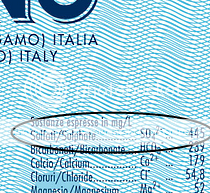Do Sulphites in Wine Cause Headaches?

| I mentioned in my recent article about visiting the Robert Blanck winery in Alsace that the owner-winemaker faced a barrage of questions about the use of sulphur (also spelled sulfur). No other technical questions were raised, not about yeast strains, vine clones or other contents of his wine. Why the fixation on sulphur? It is certain that the question wouldn’t have arisen before the 1987. Since 7 July 1987 wine sold in the USA has to have a declaration the contents contained sulphites (or sulfites), and the EU required a similar declaration in 2008. Since that statement appeared on wines sulphites have been blamed for perceived ills following drinking of wine, and in particular, that it causes headaches. But despite much scientific research, there is absolutely no evidence that the presence of sulphur in wine causes headaches. That some people suffer headaches after consuming wine is not in doubt: the cause is unknown, but sulphites have been ruled out. The fermentation process that turns grape juice into wine is a complex biological process that caused many chemical reactions and is not fully understood. As well as sulphur being produced during fermentation, so are histamines and biogenic amines, both of which are possible candidates for causing headaches. But excess alcohol consumption and dehydration can also cause headaches. As well as being naturally produced during fermentation, sulphur is used in the vineyard and winery to prevent bacterial spoilage and as a sterilizer. Sulphites are widely used throughout the food industry and are found in dried fruits, processed potatoes, in dough and sea-foods. Most people have no problem with sulphites, they’re essential for life and indeed our bodies internally produce sulphites daily. So why is there a sulphites warning? The US Food and Drug Administration determined that approximately 1% of the population has some sensitivity to sulphur, in particular about 5% of people with asthma. Some have alleged that an anti-alcohol lobby forced the label through, pointing out that other foodstuffs with much greater sulphur contents do not have to carry a similar label. If a wine has more than 10 parts in one million, or .01% sulphites then it must have the warning. Most wines have between 50-80 parts per million. Wines carry the warning because even if no sulphites are used anywhere in production, the amount of sulphites produced naturally during fermentation exceeds .01%. If you know you are allergic to sulphites then you should avoid wine – all wines. If you think sulphites cause your headaches then eat some dried apricots, if you don’t get a headache then they’re not caused by sulphites as the sulphite level on dried apricots is around 2,000 parts per million. Sulphites are in much of the food we drink. Don’t think that by avoiding drinking wine and choosing mineral water instead you’ll avoid sulphites. Take a moment to check the label for the analysis. You’ll see that your mineral water also contains sulphites. Note: Peter F May is not qualified to offer medical advice. Please consult your doctor for advice on allergies. Ask questions and talk about wine on our forum.
|  A allergy warning on a bottle of wine  > >This world famous brand of mineral water doesn't carry an allergy warning but sulphites are listed among its contents in its analysis. |
You Should Also Read:
Does Wine Really Contain Milk, Eggs and Fish?

Related Articles
Editor's Picks Articles
Top Ten Articles
Previous Features
Site Map
Content copyright © 2023 by Peter F May. All rights reserved.
This content was written by Peter F May. If you wish to use this content in any manner, you need written permission. Contact Peter F May for details.


